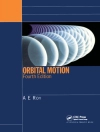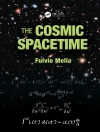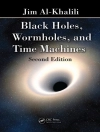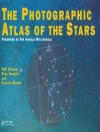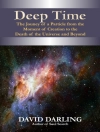Seminar paper from the year 2022 in the subject Physics – Astronomy, grade: 4.0, , language: English, abstract: In this paper, alternate theories for the Big Bang and Standard Model are proposed, which theorize how galaxies are created. The galaxy formation model explains how and where the fundamental particles are created. The greater universe is theorized as consisting exclusively of Dark Matter (DM) and Energy. DM has mass and is the source of the gravitational field. DM hosts kinetic and potential energy. A stable greater universe is the end result of entropy, wherein DM and energy are uniformly distributed.
Fluctuations in these evenly spaced DM particles allow gravitational attraction to concentrate DM, creating galactic size DM strings. The masses of DM violate entropy by concentrating kinetic and potential energy. In these DM concentrations, collisions between large DM concentrations form a spinning DM galaxy. Inside these spinning turbulent DM galaxies, DM is theorized to undergo phase change into particle size droplets. DM droplet sphere collisions are theorized to create gamma rays by converting kinetic energy into gamma ray photons (probably via 3rd or 4th derivative of DM sphere velocity).
DM spheres are predicted to capture gamma rays via Total Internal Reflection (TIR) creating a DM sphere with EM fields. Thus creating electrons, positrons, neutrons and protons. TIR is possible when the index of refraction between inside the DM sphere and outside satisfy: (n1/n2)(sin q1)>1 where n2 = 1 which is outside of the DM sphere, n1 is the DM’s index of refraction and q1 is the angle from vertical to the DM’s surface. These gamma rays may be generated inside of the DM sphere during the collisions or be captured because of the DM sphere’s expected high index of refraction.
To create a particle with EM forces, the particle must support internal standing waves, which requires the DM sphere dimension to satisfy gamma ½ wavelength dimensions. The simplest being a half wavelength diameter sphere, which probably results in an electron or positron when capturing a gamma ray. The TIR photon provides a total positive on negative external E field because the trailing photon’s E field is reversed by the lens effect during reflections inside the DM sphere, yielding an E field in the same direction as the first half of the photon’s E field direction.
About the author
Born 1943. Graduated 1968 with Physics Degree from Fresno State College. First occupation (drafted) Naval Ship Weapons System at Port Hueneme. Work history four years GTE Optics group in Mountain View, then went to Palo Alto Research Center (PARL) in Palo Alto which changed its name to Advanced Test Center. A laboratory for Lockheed.
Most of my career has been in optics and lasers. I specialized in integration for new systems that were considered red programs. Notable were Startracker, BSTS demonstration, MKV, integration of turret for Airborne Laser, and classified programs.



